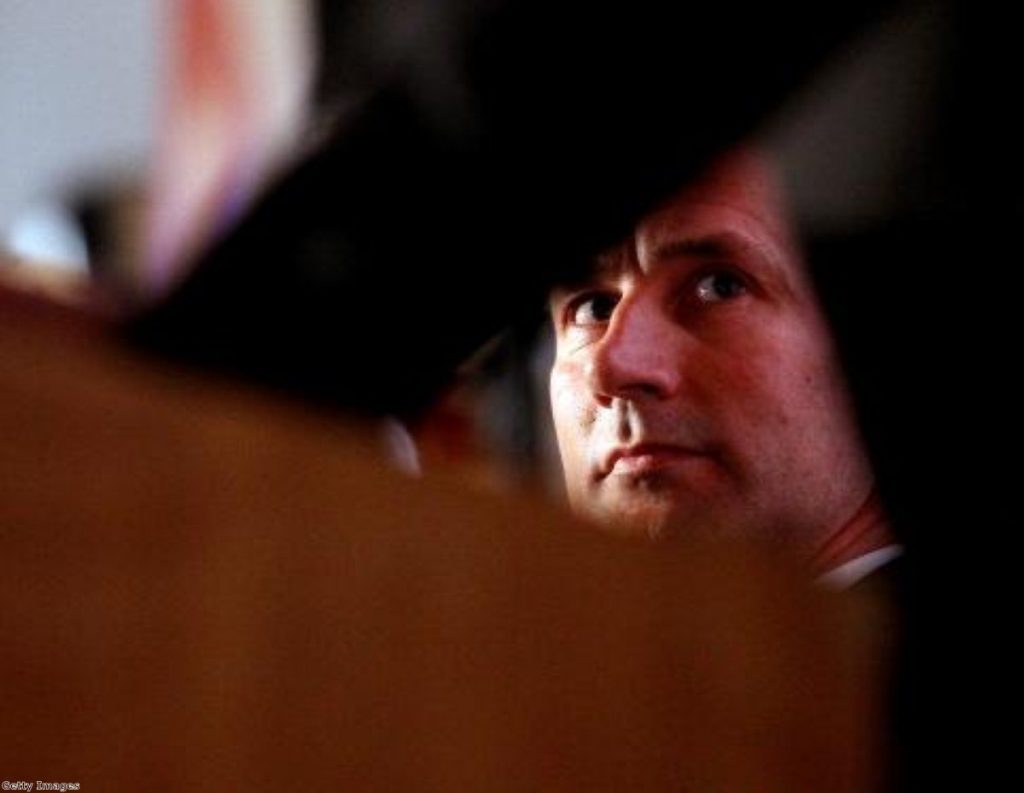The Week in Politics: Don’t cry for me, secretary of state for media
He had such sad little eyes, the secretary of state for culture, media, the Olympics and sport. If it wasn't for the overpowering stench of moral decrepitude, you could almost feel sorry for Jeremy Hunt as he sat at the Leveson inquiry, like a pupil in the headmaster's office.
Then you saw the texts. "Congrats on Brussels, just Ofcom to go!" he told James Murdoch hours before taking responsibility for the BSkyB bid. "I hope you like our solution," George Osborne told him, like an outright movie villain. And then we heard the less-than-heroic way he got rid of his baby special adviser: "Everyone here thinks you need to go." Suddenly it became easier not to feel sorry for him.
Hunt's appearance was like political charisma in reverse. We started the week with Tony Blair, who wafted into the court room surrounded by his patented political fresh air – a consumate professional with a natural tan and an easy smile. It’s become a meta-narrative. Political journalists are putty in his hands and they spend the whole time tweeting compulsively about how everyone is putty in his hands. Of course, they’re not wrong. He does have a sort of genius. He sounds like he is imparting newsworthy, fascinating titbits, but once it’s all over you search for a lead and there isn’t one. Nothing has been imparted at all. It’s the equivalent of a McDonalds: You gobble it up eagerly but feel hungry again an hour later.
Blair was followed by Theresa May who was so tedious everyone forgot it happened within minutes of her appearance – a kind of political accomplishment in its own right. After her came Michael Gove, who seemed to stroke a very delicate part of the Tory tummy. He communicates an entirely coherent small-'c' conservative vision of the world with eloquence and assurance, as if it were obviously the case. His case for a free press was, as he almost admitted, the case for a right-leaning press, but he opposed Leveson with more commitment than anyone who had come before him. He also seemed to irritate him more.
Interestingly, Ken Clarke took the stand the next day to deliver the precise opposite view, calling for more regulation in a manner which was considered and thoughtful rather than censorious. The Tories still hate him, obviously. At one stage he used his own stomach as a table to rest his arms on.
Vince Cable, who had the BSkyB bid until it was wrestled from his control, appeared on the same day as Clarke. His soft, patient account of his handling of the bid contrasted rather sharply with those choice quotes of his about a war with Murdoch.
Hunt was the precise opposite of Cable. Where Cable was resolutely officious in his handling of the bid, Hunt was lax and informal. Where Cable was clearly biased against Murdoch, Hunt was clearly biased for him. But Hunt was also the opposite of Blair. His body language was sad and unconvincing. He alienated rather than engaged everyone he made contact with. It was hard not to feel sorry for him. But not that hard.





-01.png)